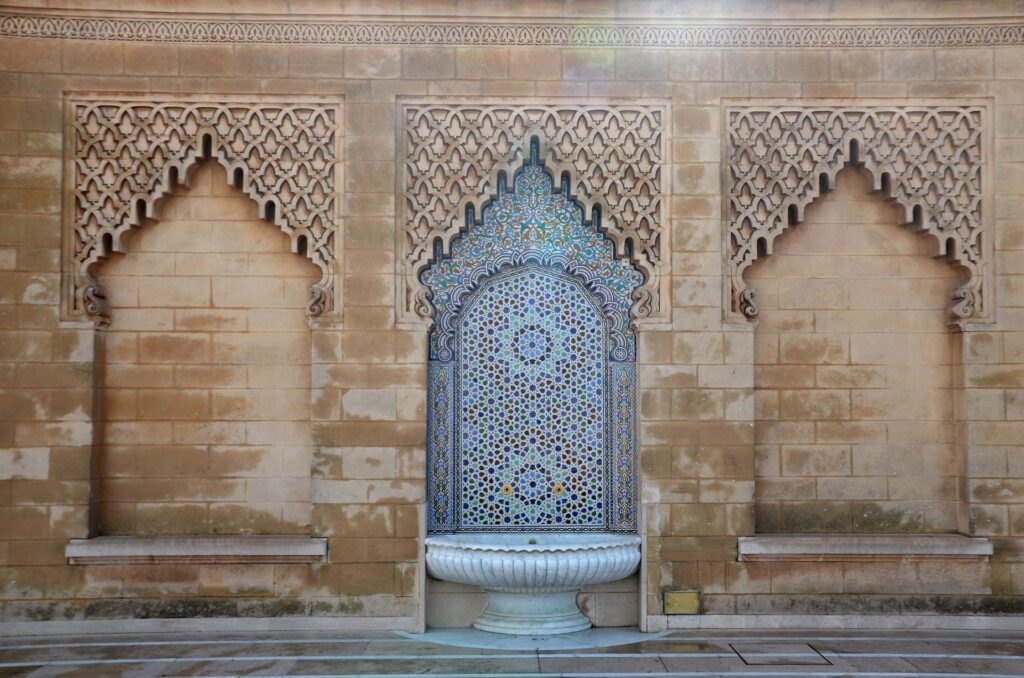Blog
The Month Of Ramadan
April 1, 2022

The month of Ramadan is one of the five pillars of Islam and is a time of abstinence and spiritual re-connection through fasting, prayer and acts of charity. It is the ninth month in the Islamic calendar and the word derives from an Arabic root which means “scorching heat” There are also spiritual rewards called “thawab” which are multiplied during the month of Ramadan.
Before sunrise, a meal called Suhur is eaten which must last for the whole day until Iftar is served at night. People who are sick or mothers who are breast feeding are not obliged to fast.
In Morocco, ten days before the month of Ramadan begins, preparations are made to bake special sweets called Zamita, Sellou or Sefouf (depending on the region) and is made with flour, almonds, sesame seeds, oil, sugar and cinnamon. Chebakiya or Mkherka is a type of Ramadan sweet and is extremely popular in Morocco. Chebbakiya is usually eaten with Harira (a famous Moroccan tomato soup) and boiled eggs after Iftar (breaking the fast), and when men come back from Ramadan’s special prayer (Tarawih).
New clothes are also bought or made for the month of Ramadan. During the last days of Ramadan, women and men start preparing for Eid al-Fitr. It is the first day following the end Ramadan. Muslims celebrate breaking the fast and succeeding in abstaining from all the pleasures of life. The Eid al-Fitr breakfast table is a variety of all the freshly baked cookies, milk, dates and Moroccan mint tea. Men wear their white jellabas, women wear their caftans and children wear their new traditional clothes. Eid al-Fitr is known for family visits, men and women get ready after breakfast to visit their loved ones.
A family can visit up to 10 houses in just one day.
Share Blog:
Empowering Peoples' Pockets
Empowch™, Empowch.com™ are trademarks of Bankey, LLC.
Copyright © 2022 Bankey, LLC
All Rights Reserved.
All other trademarks are the property of their respective.








